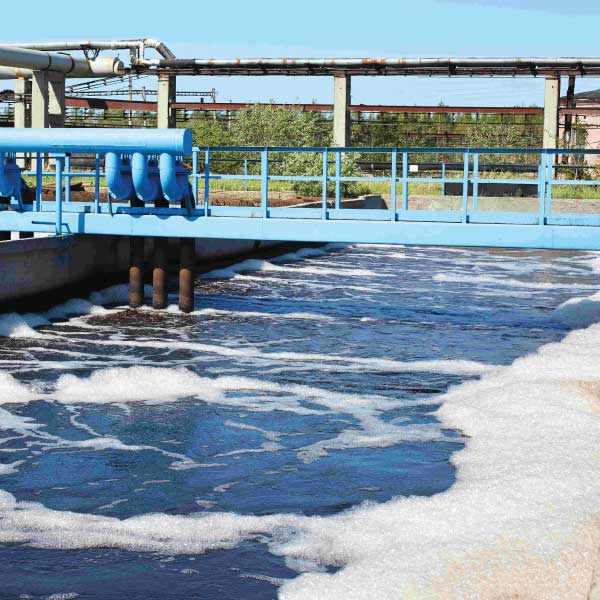In the evolving landscape of environmental consciousness, sewage treatment stands as a crucial frontier in the pursuit of sustainability. This article delves into the transformative realm of Sewage Treatment Solutions, exploring innovative approaches that not only address wastewater challenges but also contribute to building a more sustainable and eco-friendly future.
1. The Imperative of Sustainable Sewage Treatment:
Evolving Environmental Concerns:
As populations grow and urbanization accelerates, sewage treatment becomes paramount in mitigating environmental impact. Conventional sewage treatment methods, while effective, often pose challenges in terms of energy consumption, resource utilization, and environmental footprint. Sustainable sewage treatment solutions seek to address these concerns and revolutionize the way we approach wastewater management.
The Call for Resource Recovery:
A paradigm shift in sewage treatment involves recognizing wastewater not as mere waste but as a valuable resource. Sustainable solutions aim not only to purify water for safe discharge but also to recover valuable resources from sewage, such as nutrients, energy, and organic matter. This shift from waste disposal to resource recovery marks a significant step towards a circular and sustainable wastewater management model.
2. Innovative Technologies in Sewage Treatment:
1. Advanced Biological Treatment:
Sustainable sewage treatment embraces advanced biological processes that optimize the role of microorganisms in breaking down organic matter. Enhanced biological treatment methods, such as sequencing batch reactors and membrane bioreactors, improve treatment efficiency while minimizing the environmental impact.
2. Energy-Efficient Treatment Plants:
The quest for sustainability extends to the energy consumption of sewage treatment plants. Innovations in energy-efficient technologies, such as anaerobic digestion and co-generation, allow treatment plants to generate energy from sewage, reducing reliance on external power sources and contributing to overall energy sustainability.
3. Decentralized and Nature-Based Solutions:
1. Decentralized Treatment Systems:
Decentralized sewage treatment systems decentralize the treatment process, bringing it closer to the source of wastewater generation. This not only reduces the energy required for conveyance but also provides localized solutions for communities, reducing the strain on centralized treatment facilities.
2. Constructed Wetlands and Natural Filtration:
Nature-based solutions, including constructed wetlands and natural filtration systems, harness the power of ecosystems to treat sewage. These approaches mimic natural processes, promoting biodiversity and providing effective treatment while minimizing the need for energy-intensive infrastructure.
4. Reclaimed Water for Non-Potable Uses:
1. Water Reuse and Reclamation:
Sustainable sewage treatment extends beyond discharge standards to embrace water reuse. Treated wastewater, known as reclaimed water, can be utilized for non-potable purposes such as irrigation, industrial processes, and even certain types of urban water supply. This practice reduces the demand for freshwater resources and enhances overall water sustainability.
2. Nutrient Recovery for Agriculture:
Sewage treatment solutions that focus on nutrient recovery contribute to sustainable agriculture. Extracting valuable nutrients like nitrogen and phosphorus from wastewater allows for the production of nutrient-rich fertilizers, closing the loop between urban and agricultural systems.
5. Smart Monitoring and Data-Driven Management:
1. IoT and Sensor Technologies:
The integration of Internet of Things (IoT) and sensor technologies enhances the monitoring and management of sewage treatment processes. Real-time data on water quality, treatment efficiency, and energy consumption enable informed decision-making, optimizing plant performance and resource utilization.
2. Predictive Analytics for Maintenance:
Data-driven approaches, including predictive analytics, revolutionize maintenance practices in sewage treatment plants. By anticipating equipment failures and optimizing maintenance schedules, these technologies reduce downtime, extend the lifespan of infrastructure, and contribute to the overall sustainability of sewage treatment facilities.
6. Community Engagement and Education:
1. Public Awareness Campaigns:
Sustainable sewage treatment involves the active participation of communities. Public awareness campaigns educate citizens about the importance of responsible wastewater disposal, the benefits of sustainable sewage treatment, and the role individuals play in preserving water quality and environmental health.
2. Citizen Science Initiatives:
Empowering communities through citizen science initiatives fosters a sense of ownership and responsibility. Engaging citizens in water quality monitoring and environmental conservation projects not only contributes valuable data but also strengthens the connection between communities and their local water ecosystems.
7. Future Outlook and Collaboration:
1. Research and Development for Continuous Improvement:
The journey towards sustainable sewage treatment is ongoing, with ongoing research and development driving innovation. Collaborative efforts between researchers, engineers, and environmentalists aim to refine existing technologies, explore novel approaches, and address emerging challenges in the realm of wastewater management.
2. Global Partnerships for Water Security:
Water knows no boundaries, and addressing global water challenges requires international collaboration. Global partnerships for water security bring together nations, organizations, and experts to share knowledge, resources, and best practices, creating a unified front in the pursuit of sustainable sewage treatment worldwide.
8. Conclusion: From Waste to Worth in Sewage Treatment:
As we transition from traditional sewage treatment to sustainable solutions, the concept of “waste to worth” takes center stage. Sustainable sewage treatment solutions not only purify water but also extract valuable resources, reduce energy consumption, and engage communities in responsible water stewardship. The future of sewage treatment holds the promise of a circular and sustainable approach, where wastewater becomes a valuable asset rather than a burden, paving the way for a cleaner, healthier, and more sustainable tomorrow.













